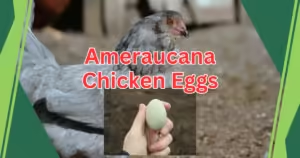Introduction
Watermelons are synonymous with summer, their refreshing sweetness a staple in picnics and hot afternoons. While most people are familiar with the classic red watermelon, there’s a growing buzz around an exotic variety—purple watermelon. Is this fruit real, or is it just a myth circulating online? In this blog post, we will dive deep into the mystery of the purple watermelon, explore its potential health benefits, and uncover whether you can actually grow or buy this rare fruit.
What Is a Purple Watermelon?
The Origins and Appearance:
These Watermelon has gained attention for its striking color, a departure from the familiar red flesh most of us are used to. Some reports suggest that the watermelon is a hybrid fruit, created through selective breeding or genetic modification to achieve its unique hue. While purple watermelon isn’t as common as red, yellow, or orange watermelons, its vibrant purple flesh has made it a curiosity among fruit enthusiasts.
Visually, purple watermelons resemble traditional watermelons on the outside, with their familiar green-striped skin. However, once sliced open, they reveal deep purple flesh that almost looks too surreal to be real. This has led many to question whether purple watermelons truly exists or if it’s a cleverly crafted myth.
Is Purple Watermelon a Real Fruit or a Myth?
So, does the purple watermelon actually exist? The short answer is that there is some debate. While there are fruit varieties with deep pigmentation, such as purple tomatoes or purple carrots, confirmed reports of naturally occurring these watermelons are scarce. Most claims of these are thought to be the result of genetic modification or selective breeding.
Several online images show purple watermelon, but it’s important to approach these claims with caution. Some of these images may be digitally altered, while others could show hybrid varieties or fruits that have been tampered with to appear purple. Nevertheless, the concept of a purple watermelon has intrigued many, and hybrid fruit cultivators continue to explore the possibility.
Nutritional and Health Benefits:
How Purple Watermelon Compares to Traditional Watermelons
Whether or not purple watermelon is widespread, it’s worth discussing how its nutritional profile might compare to other watermelons. Traditional red watermelons are packed with vitamin C, vitamin A, and antioxidants like lycopene—a compound responsible for their red color. In theory, purple – watermelons could contain higher levels of anthocyanins, the pigments that give blueberries, purple grapes, and purple carrots their distinctive color.
Anthocyanins are powerful antioxidants known for their ability to reduce inflammation, protect against heart disease, and even improve brain health. If purple watermelon contains these compounds, it could offer additional health benefits beyond what is typically found in red watermelon.
Key Health Benefits:
Should this watermelon contain the same antioxidant properties as other purple fruits, the health benefits could be substantial. Some potential benefits include:
- Anti-inflammatory properties: The anthocyanins present in purple-colored foods help reduce inflammation, which is linked to numerous chronic conditions such as arthritis and heart disease.
- Improved heart health: Purple watermelon may help reduce bad cholesterol levels and improve overall cardiovascular function.
- Antioxidant boost: The antioxidants in purple watermelon would help protect cells from damage caused by free radicals, reducing the risk of cancer and premature aging.
Even though scientific studies on this watermelon are limited, these theoretical health benefits make it an appealing option for those seeking new, nutritious fruit varieties.
Where Can You Find or Buy Purple Watermelon?
Growing Your Own Purple Watermelon
If you’re interested in growing a purple watermelon, you may need to look for specialized hybrid seeds. As of now, these watermelon seeds are not widely available in typical garden centers, and much of the current interest in this fruit comes from horticulturists experimenting with new watermelon varieties.
To grow any watermelon, you need a warm climate with plenty of sunlight. Watermelons typically require 80 to 100 days to fully mature, and they need well-drained soil. Watering is crucial in the early stages, but as the watermelon begins to ripen, it’s essential to cut back on watering to avoid watery or bland fruit. Whether or not purple watermelons are a reality, traditional watermelons still offer plenty of exciting varieties that are fun and rewarding to grow.
Markets and Online Stores for Purple Watermelon
As of now, this is not something you can easily find at your local grocery store. While hybrid fruits like yellow watermelon are increasingly available, purple watermelon is still rare. If you’re eager to try it, your best bet might be exploring specialty markets that focus on exotic fruits or contacting online fruit retailers.
Some gardeners or hybrid fruit enthusiasts may sell seeds through niche online platforms or marketplaces like Etsy, but be sure to check reviews and verify the authenticity of the seeds before purchasing. Keep in mind that growing your own purple -watermelon may take time, patience, and the right conditions.
Is Purple Watermelon Genetically Modified?
Exploring Genetic Modification and Hybrid Fruits
One of the most common questions surrounding, is whether it’s a result of genetic modification of these watermelons. In recent years, there have been growing concerns over GMO (Genetically Modified Organism) foods, with consumers seeking clarity about what they’re eating. While some rare fruits are genetically modified, purple watermelon could also be the result of selective breeding, a process that farmers have been using for centuries to cultivate new fruit varieties.
Selective breeding involves cross-pollinating plants to enhance specific traits, such as color, size, or sweetness. This method is responsible for many of the unique fruit varieties we enjoy today. In contrast, genetic modification directly alters the DNA of a fruit to produce desired traits. It is still unclear whether existing purple watermelon varieties are genetically modified or selectively bred, but as with any food, it’s important to understand the difference and make informed choices.
The Ethics of Growing Exotic Fruit Varieties
Another factor to consider when discussing purple watermelon and other exotic fruits is the ethical implications. Hybrid fruits can offer new flavors and nutritional benefits, but they may also come with environmental consequences. Growing exotic fruits often requires specialized conditions and resources, which can lead to an increase in the carbon footprint of farming.
There are also concerns about monoculture farming—when large quantities of a single fruit variety are grown at the expense of biodiversity. This can lead to soil depletion and negatively impact local ecosystems. As demand for unique fruits like purple watermelon grows, it’s essential to consider both the environmental impact and the long-term sustainability of cultivating these fruits.
Unique Watermelon Varieties Around the World
Other Rare Varieties
Purple watermelon isn’t the only rare fruit variety making waves. Over the years, several unique watermelon varieties have been introduced, captivating both consumers and farmers alike. Some of these varieties include:
- Yellow watermelon: Unlike the common red watermelon, yellow watermelon has a vibrant yellow flesh and a slightly sweeter taste.
- Orange watermelon: This variety features orange flesh and is known for its juicy, tender texture. It’s often found in farmers’ markets and specialty stores.
- Seedless watermelon: Seedless watermelons are a popular hybrid variety bred for convenience. Although they lack the seeds found in traditional watermelons, they offer the same sweetness and refreshing taste.
Purple watermelon, if it becomes more widely available, will likely join the ranks of these rare and exotic fruits, offering a new twist on a beloved summer treat.
FAQs
Can I buy purple watermelon seeds?
As of now, purple watermelon seeds are not commonly sold in mainstream garden centers. You may be able to find them through specialty seed companies or online retailers, but be cautious about the authenticity of the product. Always research the seller before purchasing.
What does purple watermelon taste like?
The taste of purple watermelon is often described as similar to traditional watermelon, with a sweet and slightly crisp texture. However, because this is rare, not many people have had the chance to try it, and reviews of its flavor are anecdotal at best.
Is purple watermelon safe to eat?
Yes, purple watermelon is safe to eat if it’s naturally grown or cultivated through hybridization. As with any fruit, ensure that it’s washed thoroughly before consumption. If you have concerns about GMOs, check whether the specific variety you’re purchasing is genetically modified or selectively bred.
Conclusion
Purple watermelon is one of the most intriguing fruit varieties to have captured the imagination of food enthusiasts in recent years. While its existence is still a subject of debate, the concept of purple watermelon opens up exciting possibilities in the world of exotic fruits. Whether or not it becomes a mainstream fruit, the idea of this watermelon highlights our fascination with unique, colorful foods that offer both visual appeal and potential health benefits.
For those looking to explore rare fruits or experiment with their own hybrid varieties, purple watermelon represents the next frontier in fruit innovation. Stay tuned to see whether it finds a place on grocery store shelves or remains an elusive curiosity.
For more exotic fruit stories and tips, visit myreadmagazine.com

Joseph Bush is a seasoned writer and researcher with over 7 years of experience covering a wide range of general topics, from lifestyle and technology to business and current events. He is dedicated to producing fact-checked, reader-friendly content that informs, engages, and empowers readers.
Throughout his career, Joseph has followed strict editorial guidelines, relied on reputable sources, and ensured every article meets the highest standards of accuracy and clarity. His expertise spans multiple fields, allowing him to explain complex topics in a way that’s easy to understand.
Passionate about continuous learning, Joseph stays updated on industry trends and best practices to deliver trustworthy, well-rounded insights. Readers can rely on his work for its credibility, depth, and real-world relevance.




